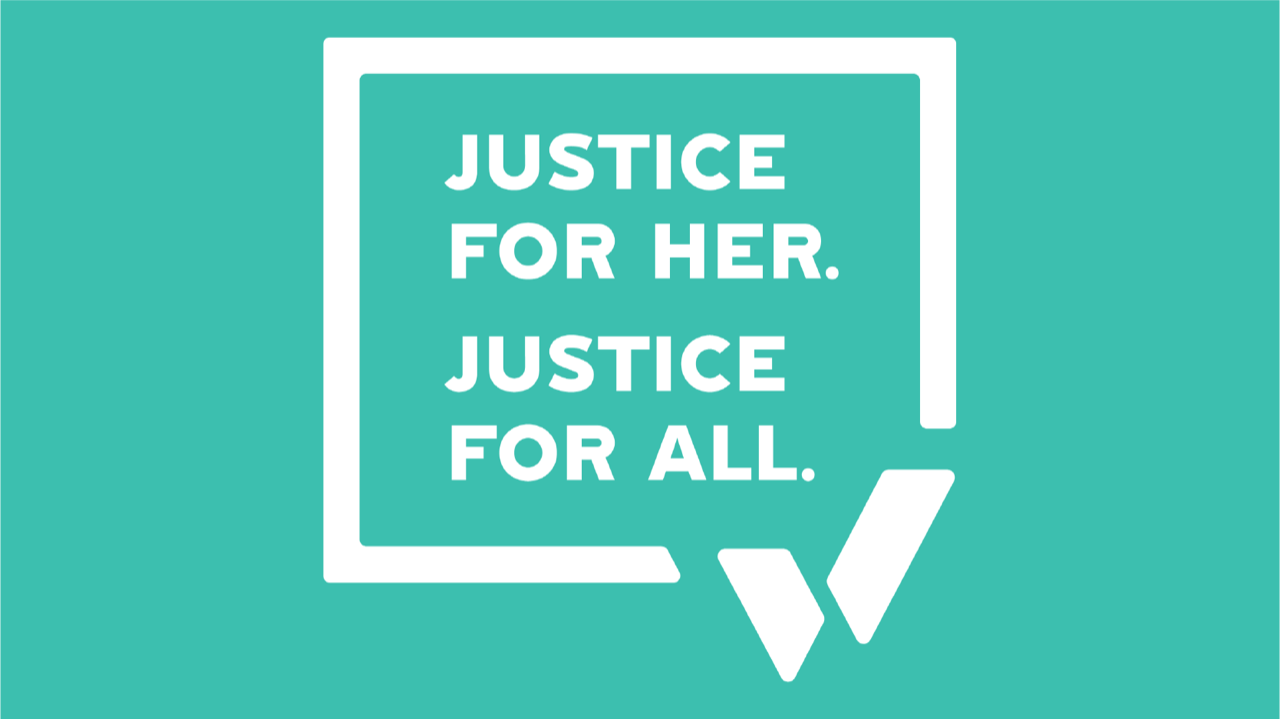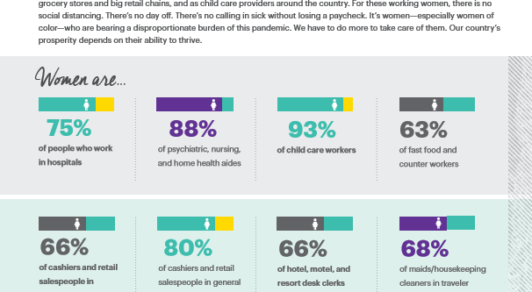Abortion rights, women of color, and LGBTQIA+ people are under attack. Pledge to join us in fighting for gender justice.

Since February 2020, millions of women in the United States have lost their jobs—accounting for the majority of the jobs lost during the coronavirus pandemic-induced recession.
Black women and Latinas are being hit particularly hard: since April, at least 1 in 10 Black women and Latinas have been jobless. And millions more women—also disproportionately women of color—who remain employed are putting their lives on the line to care for people battling illness in hospitals and in their homes; to staff grocery stores and stores like Target and Walmart; to prepare and serve food in restaurants; to clean hotels and homes; to care for children so their parents can go to work. These essential workers are often in jobs that provide low wages, few benefits, and inadequate protection from COVID-19.
Women make up most of the workforce in jobs that are being devastated by the pandemic and in jobs that are holding up our economy and protecting our health. The analyses featured here examine how working women—particularly women of color—are faring in the current recession: who is losing jobs, who is gaining them, and what job quality looks like in key sectors, including state and local government; retail; child care; health care; and leisure and hospitality.
Policy makers can and must do more to stem the tide of job losses, ensure that workers are valued and protected, and rebuild an economy that works for everyone.











